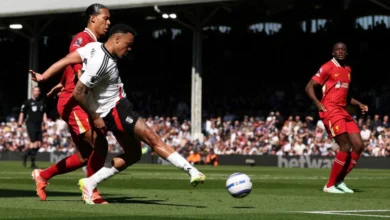Ange Postecoglou Highlights the Added Dimension Oliver Skipp Would Bring to Leeds United

In Oliver Skipp, Leeds United might acquire a player with a particularly valuable trait already showcased at the Premier League level, according to current manager Ange Postecoglou.
The 23-year-old midfielder has attracted interest from Elland Road this summer, with the club closely monitoring his situation. As the transfer window opens, Tottenham Hotspur’s pursuit of new midfield reinforcements could push academy graduates like Skipp closer to an exit.
Reports from football.london indicate that if these developments occur, Skipp is believed to be open to reuniting with Daniel Farke, under whom he spent a season on loan at Norwich City four years ago. Leeds’ boss Farke will therefore be familiar with the player’s abilities. Moreover, Skipp has developed an additional trait that the Championship club will find particularly appealing.
In Spurs’ fourth-from-last game of the recent season, they faced Liverpool without a fit left-back. Skipp was brought on with 30 minutes remaining at 4-0 down, playing in an unfamiliar role and helping his team score two consolation goals.
“We have been working with Skippy the last few weeks,” Postecoglou said afterward. “When we lost Destiny [Udogie] and Ben [Davies], we were left with Emerson [Royal], who is not really a left-back. We were looking at options, and in training, we have been using Skipp in that space.
“I thought he did well when he came on [at Anfield]. The way we play with full-backs, some of the positioning is not too unfamiliar to him. He is an option for us, and we need another option because we have three games this week and only Emerson as a back-up full-back.”
The England Under-21 international would later start on the left side of defense, with Spurs securing a 2-1 victory over Burnley in North London.
Given the demanding nature of the Championship campaign, having versatile players is a significant advantage for managers like Farke. Skipp’s versatility would be a valuable asset, particularly if injuries affect Junior Firpo and Sam Byram.
Additionally, Leeds United are keen to bring back Joe Rodon from Spurs after his impressive loan spell last season. This could result in a double acquisition from Postecoglou’s squad.
Overall, Skipp’s adaptability and proven Premier League experience make him an attractive target for Leeds, potentially providing crucial depth and flexibility for the upcoming season.



